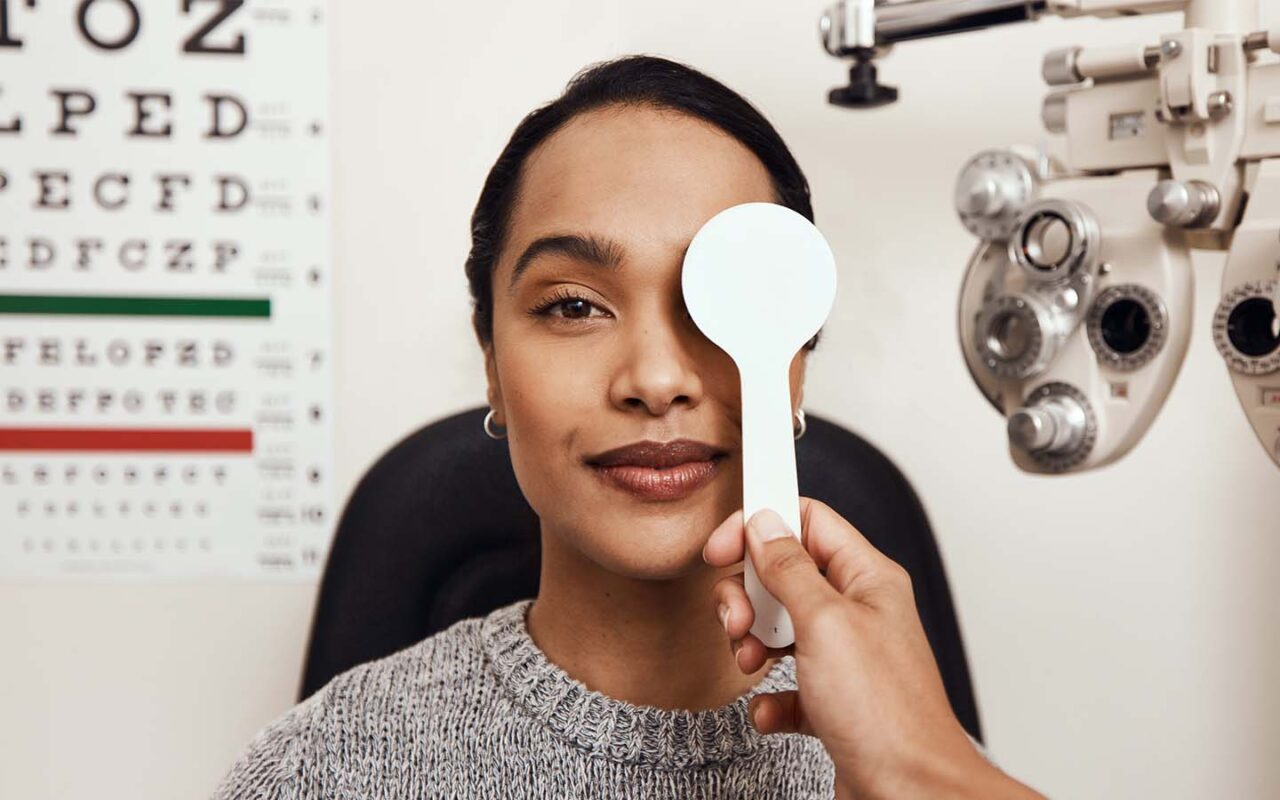All Categories
Featured
Persistent eye conditions such as glaucoma, diabetic person retinopathy, age-related macular deterioration (AMD), and cataracts can pose substantial obstacles to patients. However, with appropriate monitoring, these conditions can be regulated, and clients can remain to lead energetic, fulfilling lives. Handling persistent eye conditions needs a multi-faceted strategy that includes medical treatment, lifestyle modifications, and aggressive treatment. Below are some vital suggestions to assist clients take care of persistent eye problems successfully.
![]()
One of the most vital ways to handle persistent eye problems is by following a structured treatment strategy established by an eye treatment specialist. Whether it's taking daily eye drops for glaucoma or scheduling routine injections for macular degeneration, sticking to the prescribed therapy regimen is critical.
Chronic eye conditions call for continual tracking to track their development and find any modifications early. Routine eye exams enable health care suppliers to examine the condition and readjust treatments as needed.
Diet regimen plays a considerable duty in managing persistent eye problems. Nutrient-rich foods, particularly those high in antioxidants and omega-3 fats, can assist preserve and protect eye health and wellness. As an example, eco-friendly leafy veggies like spinach and kale are loaded with lutein and zeaxanthin, which are valuable for people with macular deterioration. Omega-3 fatty acids discovered in fish such as salmon and flaxseeds have anti-inflammatory properties that can sustain eye wellness, specifically for patients with dry eye disease. A well balanced diet regimen also aids manage hidden problems like diabetes mellitus, which can avoid difficulties associated to diabetic person retinopathy.
Safeguarding your eyes from ecological aspects is essential for taking care of persistent problems. Furthermore, people with dry eyes need to avoid environments that add to dry skin, such as gusty or dusty conditions, and utilize humidifiers to maintain wetness in the air.
![]()
Routine exercise aids boost blood circulation, which is vital for keeping eye wellness, specifically for individuals with diabetes mellitus or high blood pressure, both of which can contribute to eye conditions. Before starting a brand-new exercise routine, it's always a great idea to consult your physician to ensure your tasks are secure for your particular eye condition.
Coping with a persistent eye condition can sometimes bring about anxiety, anxiety, or tension. Anxiety can adversely influence your health, including eye health and wellness, and aggravate signs and symptoms of persistent conditions. Locating methods to handle tension with leisure methods, such as deep breathing workouts, yoga exercise, or reflection, can profit both your emotional and physical wellness. Assistance from loved ones and signing up with assistance teams for individuals with similar conditions can assist minimize sensations of isolation and give psychological alleviation.
Modern technology has made it much easier for people with chronic eye conditions to proceed leading independent lives. For patients with macular degeneration or diabetic retinopathy, devices like magnifying glasses, text-to-speech applications, and high-contrast screens can assist with everyday tasks like analysis, watching television, or making use of a computer system. Additionally, low-vision aids and mobility tools can aid in navigation and help individuals preserve independence regardless of vision loss.
Staying informed regarding your problem and the most recent therapies is essential for effective management. Educate yourself concerning your details eye condition, its progression, and available treatment alternatives.
Take note of any type of changes in your vision, such as blurriness, dual vision, or unexpected vision loss, and report them to your eye care service provider immediately. Early detection of any difficulties can make a considerable distinction in the outcome of your condition. Keeping a weekly or daily log of your signs and symptoms can help both you and your doctor place patterns and recognize potential worries extra properly.
To conclude, managing chronic eye problems calls for a proactive approach, consisting of regular clinical examinations, adherence to treatment strategies, a healthy way of life, and psychological support. With the appropriate treatment and dedication, patients can efficiently manage their problem and maintain their vision and top quality of life. By following these ideas and remaining watchful about eye wellness, you can empower yourself to take control of your condition and delight in a meeting life despite the difficulties.

- Follow a Structured Therapy Strategy
One of the most vital ways to handle persistent eye problems is by following a structured treatment strategy established by an eye treatment specialist. Whether it's taking daily eye drops for glaucoma or scheduling routine injections for macular degeneration, sticking to the prescribed therapy regimen is critical.
- Routine Eye Examinations and Tracking
Chronic eye conditions call for continual tracking to track their development and find any modifications early. Routine eye exams enable health care suppliers to examine the condition and readjust treatments as needed.
- Maintain a Healthy Diet Regimen for Eye Health And Wellness
Diet regimen plays a considerable duty in managing persistent eye problems. Nutrient-rich foods, particularly those high in antioxidants and omega-3 fats, can assist preserve and protect eye health and wellness. As an example, eco-friendly leafy veggies like spinach and kale are loaded with lutein and zeaxanthin, which are valuable for people with macular deterioration. Omega-3 fatty acids discovered in fish such as salmon and flaxseeds have anti-inflammatory properties that can sustain eye wellness, specifically for patients with dry eye disease. A well balanced diet regimen also aids manage hidden problems like diabetes mellitus, which can avoid difficulties associated to diabetic person retinopathy.
- Protect Your Eyes from Environmental Stressors
Safeguarding your eyes from ecological aspects is essential for taking care of persistent problems. Furthermore, people with dry eyes need to avoid environments that add to dry skin, such as gusty or dusty conditions, and utilize humidifiers to maintain wetness in the air.
- Stay Active and Workout Routinely

Routine exercise aids boost blood circulation, which is vital for keeping eye wellness, specifically for individuals with diabetes mellitus or high blood pressure, both of which can contribute to eye conditions. Before starting a brand-new exercise routine, it's always a great idea to consult your physician to ensure your tasks are secure for your particular eye condition.
- Take Care Of Anxiety and Mental Health And Wellness
Coping with a persistent eye condition can sometimes bring about anxiety, anxiety, or tension. Anxiety can adversely influence your health, including eye health and wellness, and aggravate signs and symptoms of persistent conditions. Locating methods to handle tension with leisure methods, such as deep breathing workouts, yoga exercise, or reflection, can profit both your emotional and physical wellness. Assistance from loved ones and signing up with assistance teams for individuals with similar conditions can assist minimize sensations of isolation and give psychological alleviation.
- Look For Assistive Tools and Modern Technology
Modern technology has made it much easier for people with chronic eye conditions to proceed leading independent lives. For patients with macular degeneration or diabetic retinopathy, devices like magnifying glasses, text-to-speech applications, and high-contrast screens can assist with everyday tasks like analysis, watching television, or making use of a computer system. Additionally, low-vision aids and mobility tools can aid in navigation and help individuals preserve independence regardless of vision loss.
- Inform Yourself and Keep Informed
Staying informed regarding your problem and the most recent therapies is essential for effective management. Educate yourself concerning your details eye condition, its progression, and available treatment alternatives.
- Display Effects and Report Modifications Without Delay
Take note of any type of changes in your vision, such as blurriness, dual vision, or unexpected vision loss, and report them to your eye care service provider immediately. Early detection of any difficulties can make a considerable distinction in the outcome of your condition. Keeping a weekly or daily log of your signs and symptoms can help both you and your doctor place patterns and recognize potential worries extra properly.
To conclude, managing chronic eye problems calls for a proactive approach, consisting of regular clinical examinations, adherence to treatment strategies, a healthy way of life, and psychological support. With the appropriate treatment and dedication, patients can efficiently manage their problem and maintain their vision and top quality of life. By following these ideas and remaining watchful about eye wellness, you can empower yourself to take control of your condition and delight in a meeting life despite the difficulties.
Latest Posts
Take Advantage of Limited-Time Auto Repair Deals in Chicago at Montclare Auto Repair
Published May 28, 25
1 min read
Improve Your Home's Outside with Weathercraft's Siding Solutions
Published May 27, 25
1 min read
Unlock Your Financial Partner at WyHy – Key Advantages for Your Financial Success
Published May 25, 25
1 min read
More
Latest Posts
Take Advantage of Limited-Time Auto Repair Deals in Chicago at Montclare Auto Repair
Published May 28, 25
1 min read
Improve Your Home's Outside with Weathercraft's Siding Solutions
Published May 27, 25
1 min read
Unlock Your Financial Partner at WyHy – Key Advantages for Your Financial Success
Published May 25, 25
1 min read